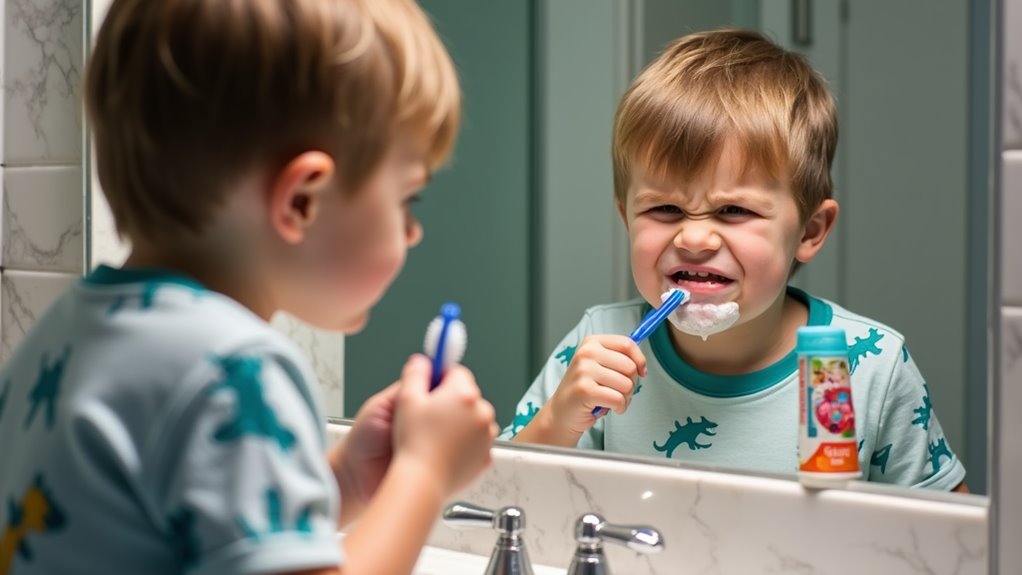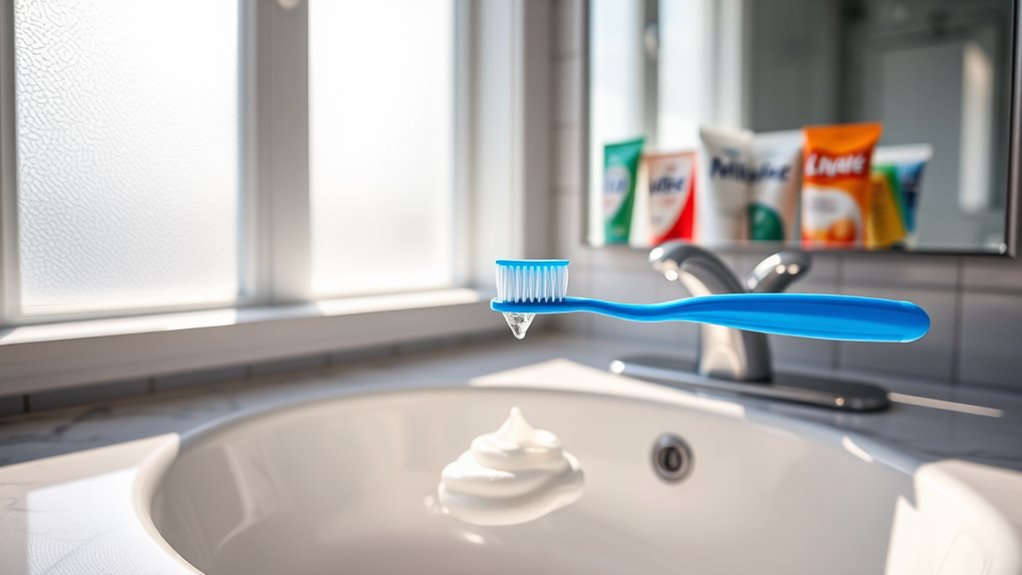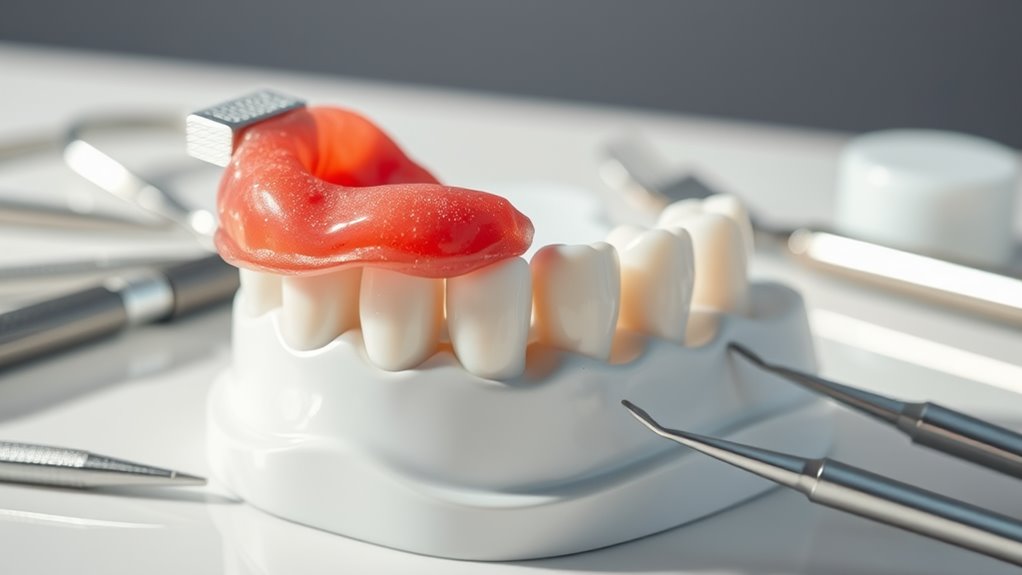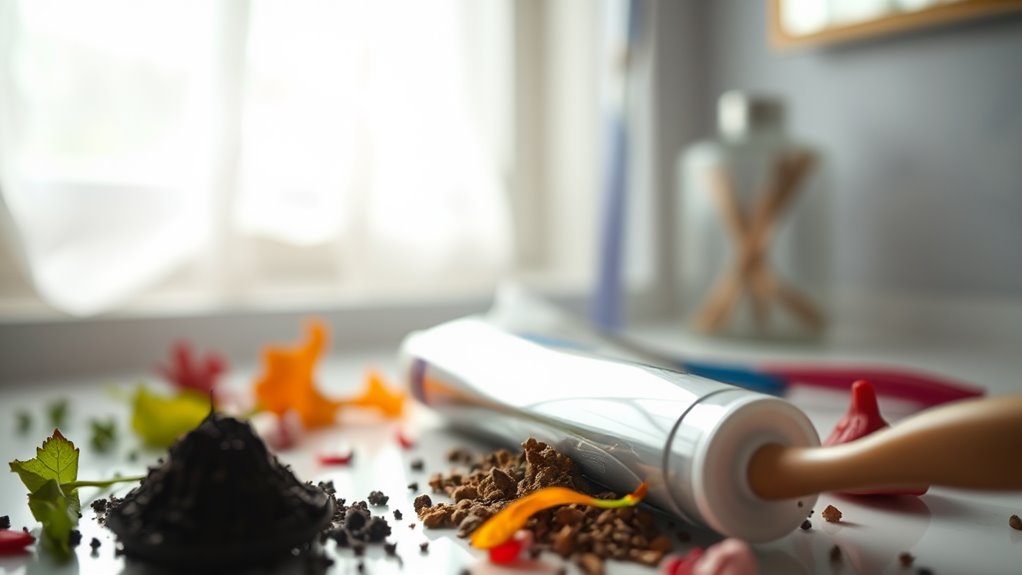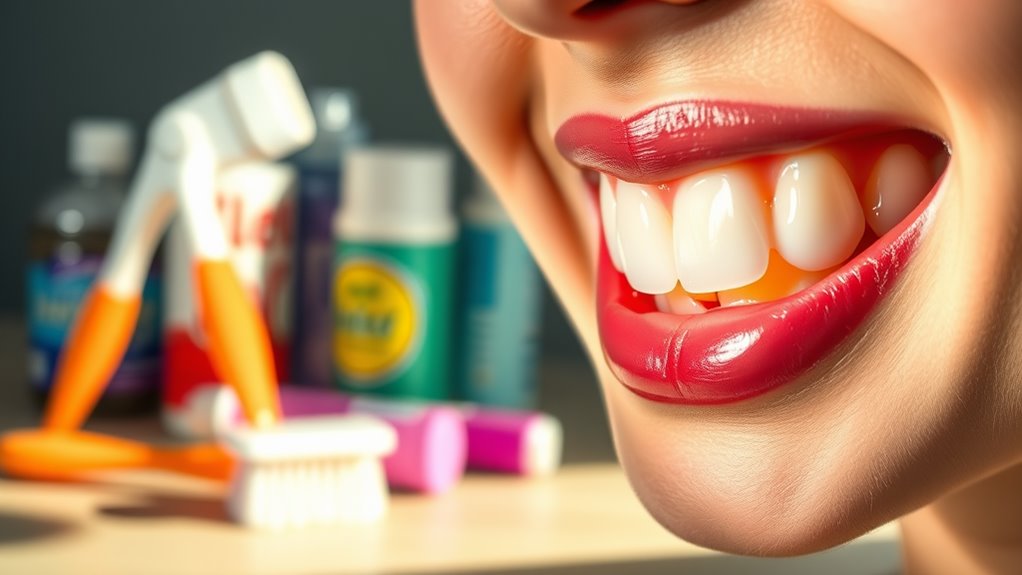Why Your Kid HATES Brushing Teeth (And How to Fix It!)
You’re not alone in the daily struggle of getting your child to brush their teeth. Whether you’re dealing with tears, tantrums, or clever negotiation tactics, the bathroom can feel like a battleground. While it’s tempting to chalk it up to stubbornness, there’s actually fascinating psychology behind why kids resist this essential habit. Understanding these hidden reasons – and knowing the right strategies to address them – can transform your family’s dental routine.
The Hidden Psychology Behind Your Child’s Tooth Brushing Resistance
Although tooth brushing seems like a simple daily task to adults, children often view it as an unwelcome interruption to their day. Your child’s resistance to this vital habit stems from complex psychological factors that influence their behavior.
Children naturally seek autonomy and control over their experiences. When you direct them to brush their teeth, they might perceive it as a challenge to their independence. This kids brushing teeth problem intensifies when they’re engaged in enjoyable activities, making the transition to oral care feel like a punishment rather than self-care.
Additionally, young minds haven’t yet developed the cognitive ability to understand long-term consequences. They can’t connect today’s tooth brushing with preventing future cavities. Their focus remains on immediate gratification, making the seemingly mundane task of oral hygiene feel pointless and bothersome.
Understanding these psychological barriers helps you develop more effective strategies to encourage consistent dental care habits. Early dental visits by first birthday help catch issues early, making it easier for children to understand the importance of brushing their teeth.
Common Triggers That Make Kids Avoid the Bathroom Battle
Common triggers that make kids avoid brushing include:
-
Sensory overload from strong mint flavors and bristle textures that feel overwhelming to their developing nervous systems
-
Fear of water splashing on their face or the sensation of foam around their mouth
-
Control issues, especially during developmental stages when they’re asserting independence
-
Time pressure during rushed morning or bedtime routines that creates anxiety
-
Negative associations from past experiences, like gagging or being forced to brush
Additionally, incorporating fun games into the brushing routine can help alleviate some of these triggers and make the experience more enjoyable for children.
Age-Specific Strategies for Dental Success
Because children’s developmental stages greatly influence their tooth-brushing behaviors, you’ll need different approaches for each age group.
For toddlers (ages 2-3), transform brushing into a playful game using musical timers or their favorite stuffed animals as “dental patients.”
Preschoolers (ages 4-5) respond well to reward charts and superhero narratives about fighting cavity monsters.
School-age kids (ages 6-8) thrive with tech solutions like smart toothbrushes or dental care apps that track their progress. Give them ownership by letting them choose their toothbrush design and toothpaste flavor.
Tweens (ages 9-12) connect with scientific explanations and real-world consequences – show them pictures of cavity formation or discuss how oral health impacts their social life and appearance. Additionally, engage them by highlighting the importance of dental health to encourage responsibility in their oral care routine.
Remember to adjust your supervision level. While toddlers need hands-on guidance, older kids require more autonomy with occasional spot-checks to ensure proper technique.
Making Tooth Brushing Fun: Games and Rewards That Work
By leveraging your child’s natural love for play and achievement, you’ll create positive associations with tooth brushing that last a lifetime. Good dental habits prevent cavities and gum disease, making it essential to establish enjoyable routines during early childhood.
Try these proven game-changing strategies to make dental care exciting:
- Download a tooth brushing app that plays music, tells stories, or features animated characters brushing alongside your child
- Create a reward chart where kids earn stickers or points toward a special prize after consistent brushing
- Turn it into a dance party – play your child’s favorite song and brush until it ends
- Use a sand timer and challenge your kids to “beat the clock” while brushing thoroughly
- Role-reverse by letting your child brush your teeth first, then switch roles
Remember to swap out games periodically to maintain novelty and engagement.
The key is finding what resonates with your unique child’s interests and personality.
Building Long-Term Healthy Dental Habits Together
While games and rewards provide initial motivation, establishing lasting dental habits requires consistent family involvement and positive modeling. Your children will naturally mirror your own dental care routine, so make brushing and flossing a shared family activity.
Create a dedicated “smile care” time where everyone brushes together. Transform your bathroom into a dental-friendly zone with kid-height mirrors, colorful timers, and organized hygiene stations. Let your children pick their own dental products, empowering them to take ownership of their oral health.
Share stories about your own dental experiences and celebrate small victories together. Tracking progress using digital apps or creative wall charts that highlight the family’s collective commitment to oral health can also help reinforce these habits. Remember that good oral hygiene can reduce the risk of respiratory infections, further emphasizing the importance of maintaining a clean mouth for overall health.
Remember to stay patient – it takes about 66 days to form a new habit. By maintaining a consistent, supportive environment and demonstrating proper dental care yourself, you’ll help your children develop lifelong healthy habits naturally.
